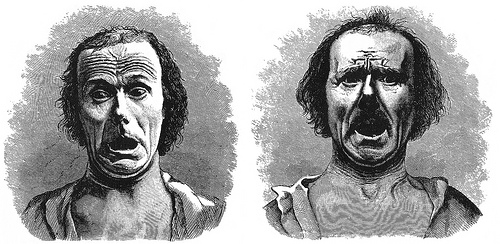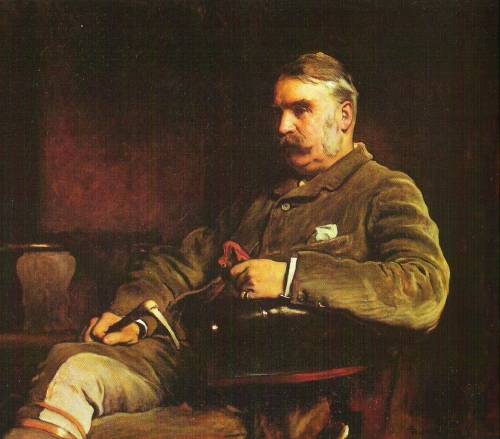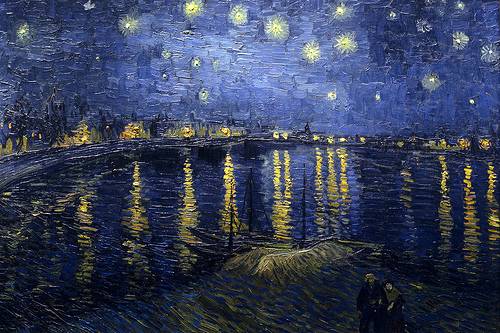
Terror and horror, from Darwin’s The Expression of the Emotions in Man and Animals.
Ann Radcliffe wrote: “Terror and horror are so far opposite, that the first expands the soul, and awakens the faculties to a high degree of life; the other contracts, freezes, and nearly annihilates them.”
Or, in Devendra Varma’s words, “The difference between Terror and Horror is the difference … between the smell of death and stumbling against a corpse.”



